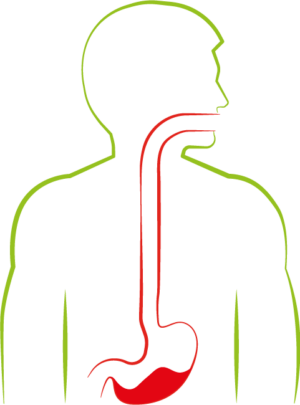There are several risk factors that make reflux more likely or which speed up its course:
Overweight and obesity
Being overweight or obese can make gastro-oesophageal reflux more likely and more severe
Taking medicines
Using non-steroidal anti-inflammatories (NSAIDs) can make the reflux syndrome more acute
Smoking
The nicotine in cigarettes can have a negative effect on gastro-oesophageal reflux
Stress
Stress can make the symptoms of gastric reflux more severe
Hiatus hernia
Hiatus hernia occurs when part of the stomach slides into the chest through an opening in the diaphragm (diaphragm hiatus) causing chest pain and other reflux symptoms in some cases
Food and drink
Some food and drink, such as spicy food, drinks with caffeine and high-fat foods can make reflux syndrome more likely or more severe
Pregnancy
Gastro-oesophageal reflux disease is very common in pregnant women. This may be due to hormonal changes and the increased pressure on the stomach as the foetus grows. The symptoms often appear during the first three months of pregnancy and stop after the birth


